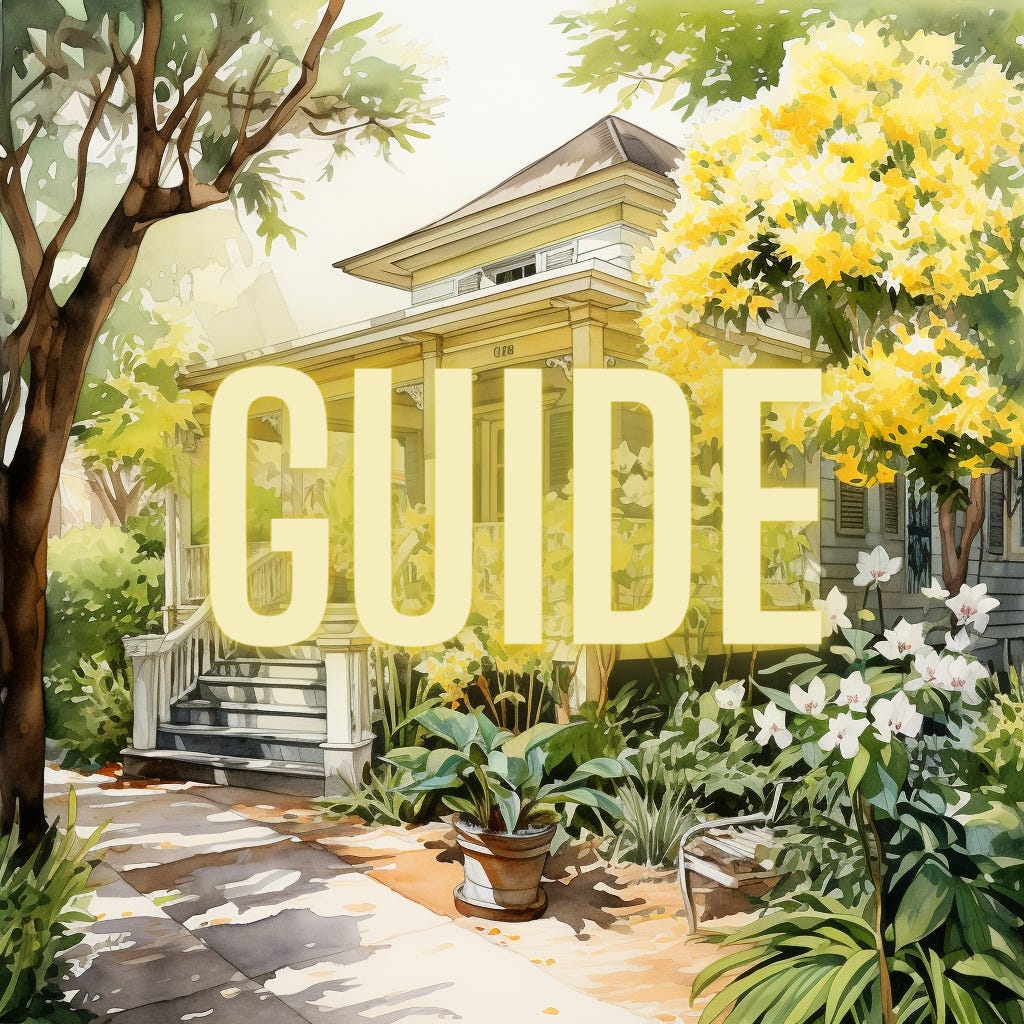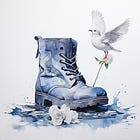For each short story we have created a guide that elaborates on the subject/conflict of the story and offers some more insights about the topic. The guide also offers a quick exercise that helps the reader examine their relationship with the subject and see themselves more clearly.
We recommend reading the short story first, you can find it here:
In the short story "The Veranda," we delve into a very sensitive topic, specifically childhood molestation or sexual harassment. This type of childhood trauma leaves deep marks on a person, even if it is "just" molestation without actual sexual violence. Molestation and sexual harassment come in many forms, including those that people tend to dismiss, claiming it was just a stupid joke, a dumb comment, or an unpleasant touch.
I've heard many say that it wasn't a big deal that their fathers watched pornographic films in their presence during their childhood, made comments of a sexual nature or just charged with sexual energy about their breasts beginning to develop, which made them feel uncomfortable, or how an uncle would sit them on his lap as children and they could feel him get an erection.
If, as adults, we are unable to clearly determine whether what happened to us in childhood was actually molestation or sexual harassment, then the best thing we can do is ask ourselves the following question:
How would I feel if I found out that someone did to my child what happened to me?
If anger flares up within us, if we become outraged, and if the instinct to protect our child is immediately activated, then it is clear that what happened to us was much more than just a poorly executed joke or misunderstanding. If it turns out that we too were molested or sexually abused, then the only thing we can do is start processing this trauma.
Sexual harassment, molestation, and abuse are emotionally complex topics. In addition to the loss of a sense of safety, victims often struggle with immense feelings of shame and dirtiness after the incident. They also commonly face the problem of having no one to share their experience with, which is particularly true if the abuser is a close family member or someone close to the family.
Even if the perpetrator is a stranger, the child might still fear not being believed if they tell their story. Naturally, if the parent-child relationship is truly based on trust, then there's a greater chance that the child will report what happened to their parents.
The situation becomes more complicated when one of the parents is the abuser. In this case, the child must take a huge risk if they want to share what happened because it's uncertain if the other parent will take their side. If they are not believed or, even worse, ridiculed, they lose not only one but both parents in an instant, and their whole world collapses.
The short story "The Veranda" vividly demonstrates the turmoil of many feelings swirling in a child's soul when they become victims of sexual abuse. Just as Julie connects many positive experiences to her grandparents' house because of her grandmother and her mother, there is also the boiling anger, shame, and weight of the secret caused by molestation, which she never shared with anyone in the family. Despite her attempts, Julie was unable to process what had happened to her by adulthood. When she returns to the house in Southern France, the nauseating memories immediately resurface.
Julie clings to the house because it is where she experienced her most beautiful summers with her mother, whom she lost early, but it is also where she experienced the worst moments of her life, thanks to her pedophile grandfather. These memories still sour her relationships in the present because she feels uncomfortable with sexual advances from men. As for the decision whether to sell her grandparents' house or keep it, I won't reveal that; those interested should read the short story.
Regarding the dynamics of sexual harassment, it is necessary to somehow map out and heal many emotional layers within the victim because without processing all of these, we will not be able to recover from the trauma.
Of course, this doesn't mean that we won't experience partial results during the time we work on ourselves, but we will only fully heal when we have examined and addressed every aspect of what happened.
It's important to honestly look at what we feel, and even when potentially confusing feelings arise, not to blame ourselves. Sexual assault or molestation is never the child's fault, no matter what they may feel towards the perpetrator or about the act itself.
For example, I've seen a woman who as a young teenage girl tried to get revenge on her mother by flirting with her stepfather who eventually raped her. The adult daughter blamed herself for what happened and for initially enjoying the flirting.
The shame caused by her original motivation, and the initial excitement of an adult man responding to her budding femininity, generated a sense of shame so profound that she was unable to admit her true feelings to herself for a long time, and thus unable to heal for decades.
We must be aware that the molestation or rape of a child or teenager is always the responsibility and shame of the adult. No matter what a young child does, at the end of the day, it is the adult who must know what is right and what is wrong and act accordingly. Just as we do not slap a three-year-old, even if they slap or hit us for some reason. As adults, there are various methods to handle such situations, and it is our responsibility to choose the appropriate one.
Now, let's examine the emotional dimensions related to abuse that survivors of childhood sexual abuse need to explore within themselves:
How did we feel when the molestation or violence happened? Here, we are not discussing our feelings towards the perpetrator, but rather our feelings about the incident itself. Fear? Shame? Disgust? Anger? Or possibly some positive sensation? Indeed, this is possible, as various family dynamics can contribute to complicating such situations, as mentioned above.
What did we feel and what do we feel now towards the perpetrator? Hatred? Pity? Anger? Disgust? Or some other feeling?
If we didn't tell anyone at the time what happened to us, what was it like to have to keep it all to ourselves? What was it like to not be able to trust anyone enough to tell them what happened? And what was it like knowing that the perpetrator could still prowl around us innocently?
If we did tell someone what happened, what feelings did it evoke in them? Did we encounter understanding or disbelief? What was that like? Reassuring? Providing security? Frightening? Shameful? Or possibly infuriating?
Was there any change after we told someone about what happened? Were there any consequences for the perpetrator or not? What was it like to be believed or not believed? What was it like to have someone stand by us or not? Did we feel safe after we shared what we had gone through?
If it wasn’t one of our parents who committed the sexual abuse, what do we think as adults, did our parents know about it regardless of whether we told them or not? Do we blame them for what happened? Do we think they should have taken better care of us? What does that feel like?
If one of our parents abused us, what do we feel deep in our hearts about whether the other parent knew about it, collaborated as an accomplice, even if only by turning a blind eye to the signs? What kind of feeling does this evoke in us?
What feeling does it evoke in us that we involuntarily experienced the first sexual experiences of our lives with the abuser?
If we honestly answer these questions, we can identify the points that elicit the strongest emotional response in us. It is worthwhile to begin the processing journey with these themes. Expressing our emotions, even if only to ourselves, can be greatly helpful. We might even imagine the characters of our story and tell them one by one what hurt us, what angered us, and how we felt. Understanding anger and resentment more deeply and releasing them in a safe manner is advisable. To fully comprehend what they mean and how to release them safely, it would be worthwhile to read the following two articles:
As for the safe release of anger and how to continue processing childhood sexual trauma, here is a guide:
I hope that the aforementioned questions and topics will help you better understand and untangle the complex emotional knot caused by sexual abuse. While finding a solution is never easy, investing energy into it is worthwhile because such traumatic childhood experiences often result in wide-ranging subconscious behaviors, which most often lead to some form of self-sabotage. This can ruin not only our relationships but also our health and careers.
– Eszter
Here is my personal email for paid subscribers, you can ask personal questions and receive personalized answers to those you might not wish to ask publicly.
Home | Notes | Articles | Eszter’s Magic | Literary Bonbons | Short Stories and Guides | Beyond the Book | EWE Issues | Archive | About








